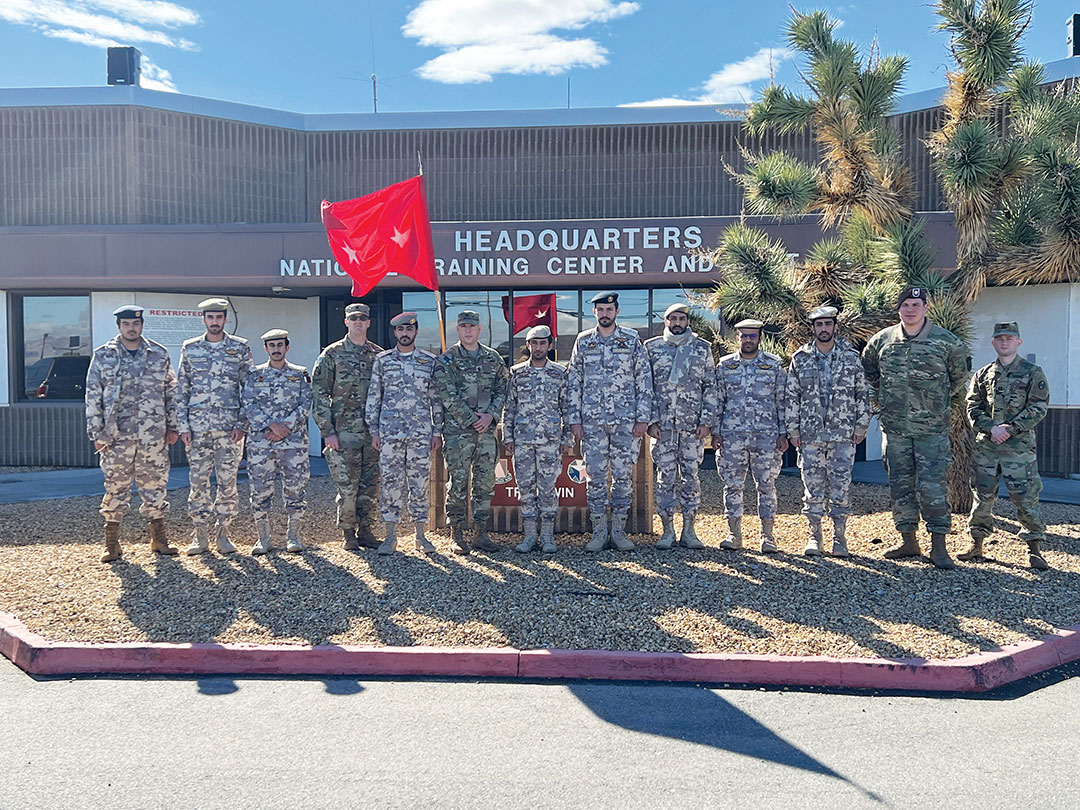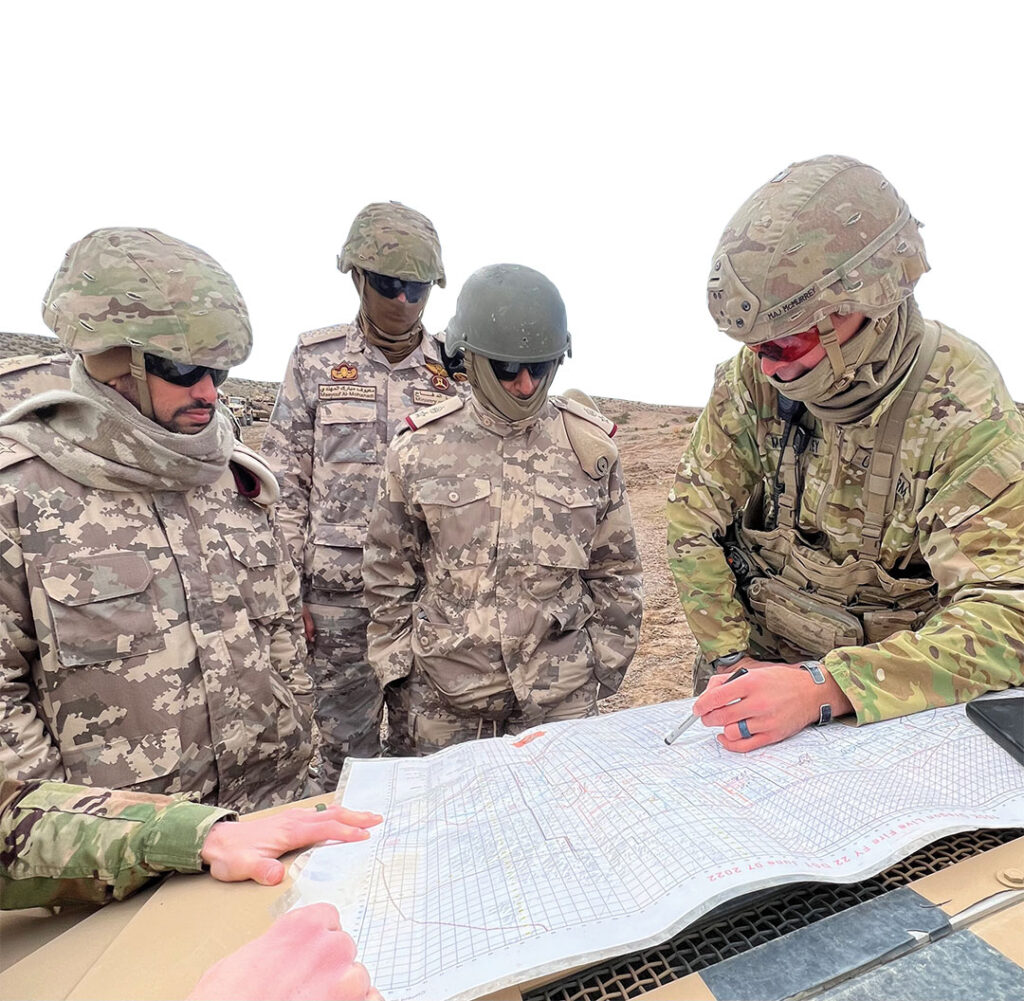UNIPATH STAFF | photos by u.s. army central
During the February 2024 visit of the Qatari Land Forces delegation to the National Training Center (NTC) Fort Irwin in California, where the rugged terrain is considered a realistic environment to train for tank and infantry battles, Unipath interviewed Lt. Col. Mohammed Al Kuwari. He talked about the center’s capabilities and ways to develop the skills of friendly forces there.
Unipath: What is your opinion of the U.S. Army National Training Center?
Lt. Col. Al Kuwari: On our first visit to the U.S. Army National Training Center, which is considered one of the best training centers in the world with its integrated system of facilities and latest technologies, we found that it provides trainees with real-life combat experience in an environment that reflects conditions on the battlefield, from fighting in rugged terrain to populated cities as well as armored battles in open terrain and mountainous regions.
Unipath: How can the technologies and expertise of the National Training Center help to develop the skills of the Qatar Armed Forces?
Al Kuwari: The U.S. Army has immense capabilities as well as the resources to acquire and develop new technologies that help to detect enemy locations and direct precise strikes, in addition to protecting its own forces from hostile fire. It also possesses advanced combat training technologies. Every Soldier and vehicle is equipped with advanced sensors that tell the training commander and supervisors the location of the forces, the degree of injury suffered by every Soldier and the damage caused to every piece of military hardware on the battlefield. This tells them whether the forces succeeded or failed in their given objectives and identifies any mistakes platoon or company commanders made so that they may be avoided in the future. Such advanced technologies are vital for evaluating the performance of forces and developing their capabilities. Of course, we can benefit from these technologies by sending several trainees, whether commissioned or noncommissioned officers, on an ongoing basis so that they can gain field experience and become acquainted with new training techniques and technologies and the potential for employing them in the training centers of our own armed forces.

Unipath: How can a partnership with U.S. forces benefit joint training and exercises?
Al Kuwari: A partnership with American forces in the field of training and exercises is of utmost importance to the Qatari army. We have a long-term relationship with the U.S. military, and joint training and exercises have benefitted us immensely in gaining experience and employing new technologies in combat. The American military has fought many wars in different terrains and difficult conditions such as World War II, Vietnam, and the global war on terror. This is a vast amount of field experience that allows them to share expertise with us.
Unipath: Are you considering sending units from the Qatari army to train at the center?
Al Kuwari: After our first visit and after familiarizing ourselves with the facilities and training methods at the National Training Center, sending successive groups of personnel from the Qatari army to train in this important facility will be a priority for us. We hope to participate at the company level so that they can train with peers in the U.S. Army and share expertise and tactics. This center covers 2,600 square kilometers of difficult terrain. This allows participants to gain experience in adapting to combat conditions, building defenses and fortifications after liberating an area, and holding fighting positions for days before advancing toward other objectives or repelling enemy attacks. The center also encourages field commanders to think carefully when planning and when securing supply routes for distances ranging from 50 to 100 kilometers. It also teaches combat without reliance upon modern technologies. This in itself is a big challenge that gives commanders the ability to fight effectively under any conditions. We will gain experience and share our experience with them on combat doctrine, training methods, fighting in desert environments, protecting vital installations and coastal defense.

